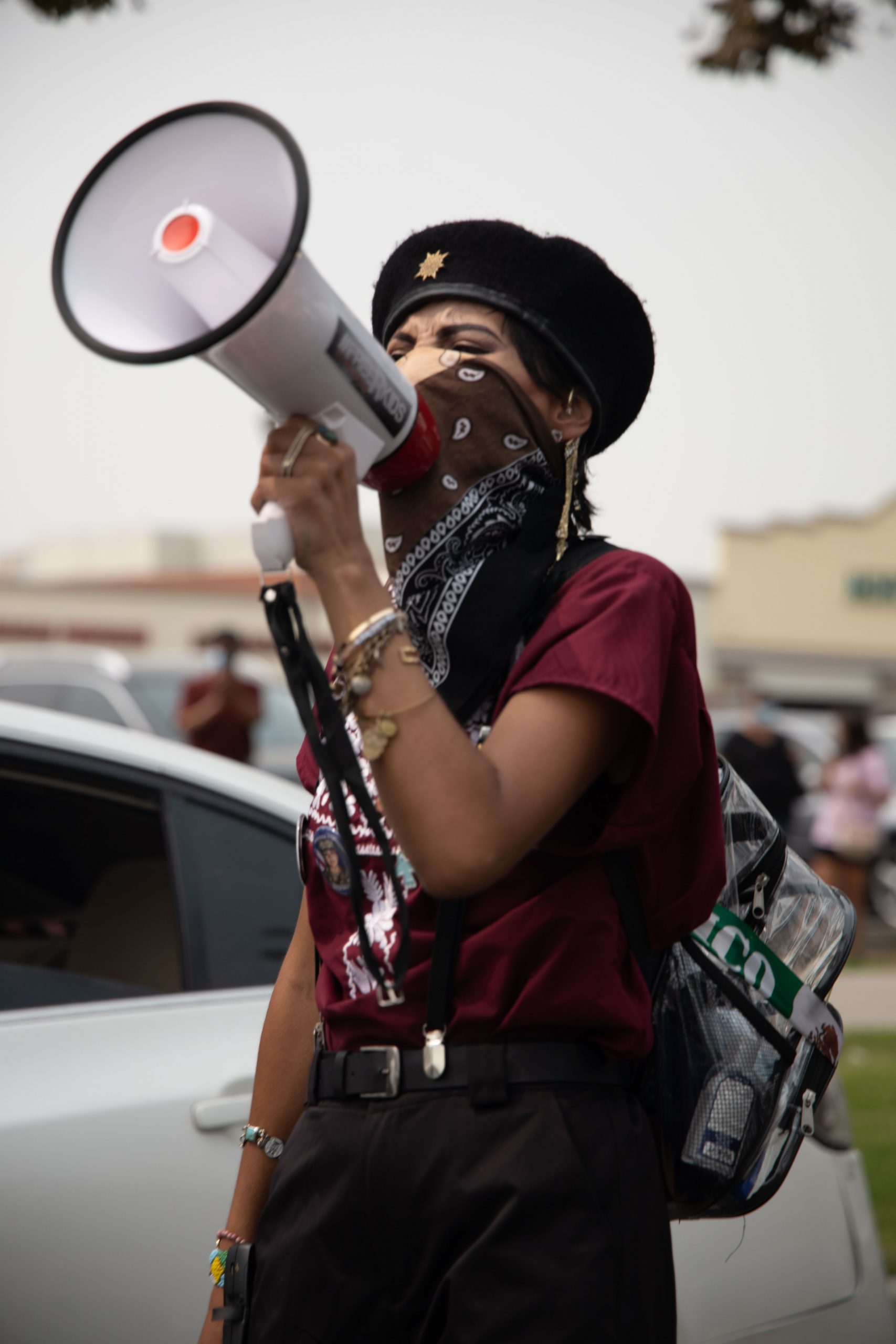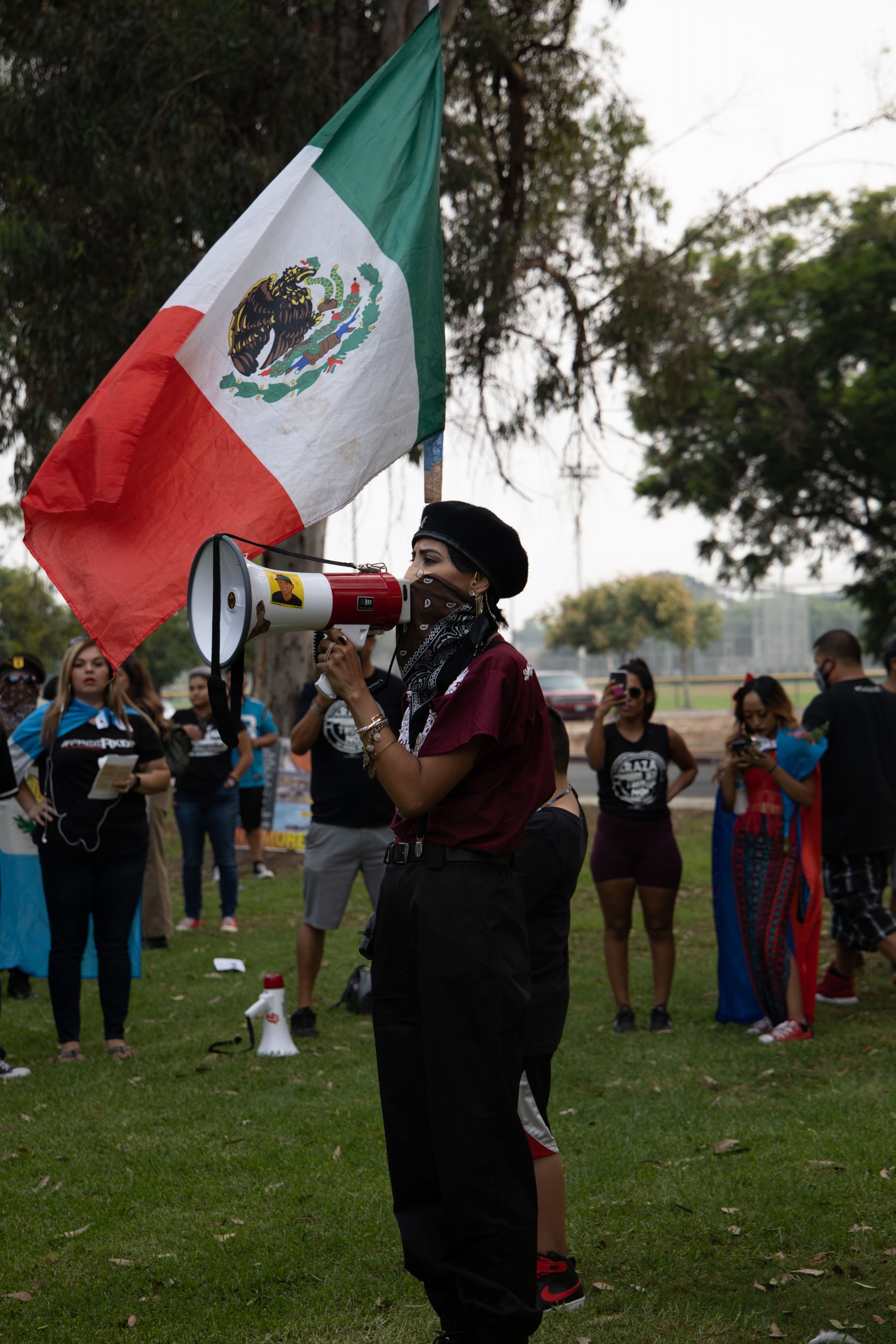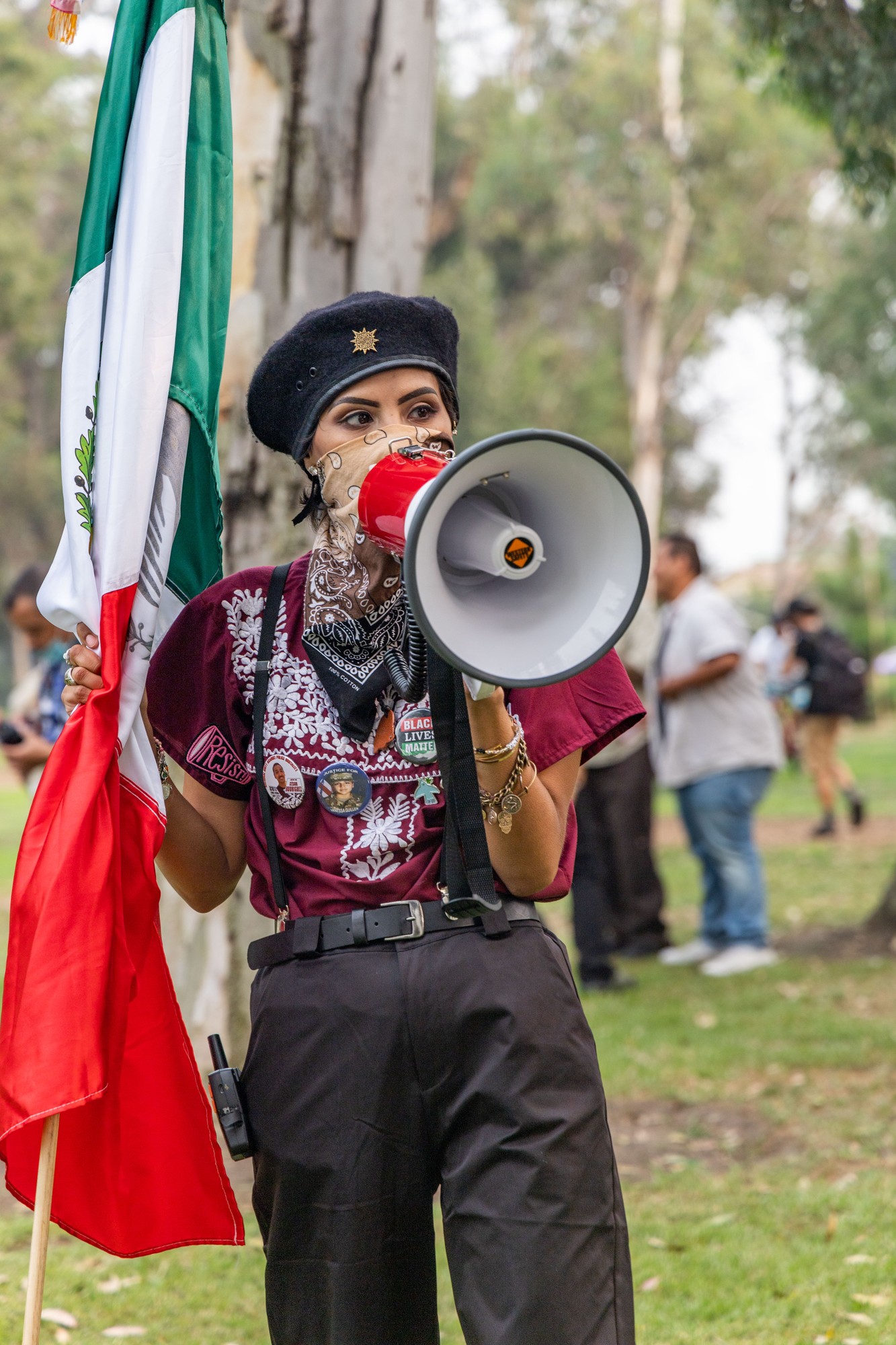When several hundred people gathered in Lake Forest, California, for a Black Lives Matter protest on June 3, 2020, over a week after the murder of George Floyd by police in Minneapolis, something new was in the air. Hundreds of young people were lining the streets, most of who had never protested before, and releasing pent up anger at injustice and systemic racism. A woman in her early 30s, with dark short-cropped hair and a fiery voice, stepped in front of the crowd.
“Say his name!” she began. At first, there was no response.
“Say his name: George Floyd!” she emphasized, completing the chant for them to emulate. The hundreds assembled there joined in, and soon she was leading the march several blocks to a nearby park.
Ivette Boyzo did not expect to be leading demonstrations against police brutality at the start of this year. Not too long ago, she was fighting for both her life and her freedom in very different ways, in court and in the hospital.
Dying is incredibly peaceful. And when you are on the brink of death, you know it. At least that’s what Ivette says. She’s been on the brink of death multiple times. In 2015, when she was 27 while driving to get medications from her local pharmacy, she noticed that something was very wrong. The feeling of a jolt of electricity pulsed through her brain then moved to the rest of her body. Then she felt a great heaviness in her chest, as well as nausea and the urge to vomit. Although she didn’t know it yet, Boyzo was suffering from a seizure.
At that moment, she was pulled over and arrested for a DUI.
After her arrest, Boyzo was left in a cell alone, first in Orange, and then transferred to a jail in Santa Ana, where she lived at the time. Meanwhile, she was seizing all through the night, in incredible pain. The cause of the seizures was epilepsy, for which she had been misdiagnosed, despite suffering from this since she was 8 years old. The next day, her husband bailed her out of jail and took her to the hospital, where she was told she had tendonitis, given steroids, and sent home.
As the days went by, the pain did not let up. She started having large gaps in her memory and felt that she was losing touch with reality. The experience took a mental toll on her and led her to attempt suicide.
Just after 2 a.m., her youngest son, then just 5 years old, woke up to find his mother losing consciousness on the couch. He rushed to her and tried to wake her.
“I just thought, ‘What did I do? What was I thinking? My children are always going to need their mom. There is no one ever who is going to replace me,’” recalls Boyzo.
She did lose consciousness that night and woke up in the hospital several days later. It was there that she found a new resolve.
“There and then I promised: If I make it, I am going to dedicate my life to do my best to turn this into a better place for my children, and not just for them, for all of the children.”
In the years since, Boyzo has made good on that promise, engaging in relentless work in both the courts and in the streets, fighting for families with few resources who find themselves in the middle of the justice system, struggling to get representation, mental health resources, and sometimes to just navigate the paperwork.
Boyzo’s health issues originated in her youth when she lived in Mexico. She says that neither her family nor the medical system in Mexico took her seriously when she complained about the chronic pain and seizures. Because she does not always suffer from convulsions, the diagnosis for epilepsy was never prescribed.
“In Mexico, this is such a big stigma, a taboo, that the families would even say that ‘She is just attention-seeking. She’s just faking it,’” Boyzo recalls. “When I was 12, and I was having seizures, they thought that I was pregnant. At the time I had no idea what that meant. I was just a kid.”
Boyzo would find out much later that her form of epilepsy is both uncommon and intractable—meaning that it does not respond to treatments. She suspects that this is due to her gastroparesis, an incurable disorder that can prevent proper digestion and lead to malnourishment.
In addition to a childhood marked by a physical ailment, when she was 8, Boyzo’s father lost his job, the key source of income for their family. Even before he lost his job, her father was often violently abusive. Boyzo says that her earliest memory of her parents is of her father physically assaulting her mother, often beating her.
When Boyzo was 15, fleeing the violence, her mother took her and her brother to the United States. She’s grateful for this, despite the present domestic political, and cultural situation where she sees her community struggling against police brutality and deportations.
“Yeah, things are kinda hectic and bad,” she says, reflecting on the country she has called home for over 17 years. “But I think this is the place in the world where we can actually change things. This has become home. I want to fight for my people here.”
The inspiration for helping people materialized as she was fighting to keep her own freedom. After Boyzo was arrested for the DUI, Orange County prosecutors filed charges against her, using the evidence of traces of medications in her blood. She says those traces of medication were from a prescription she took for stomach ulcers that her body couldn’t properly absorb because of her gastroparesis.
She fought the charge, and it was through the course of her four-year legal battle that she came into contact with people who she felt could not be ignored.
One day, when dropping off paperwork at the Santa Ana Superior Courthouse, she saw a man, an immigrant who did not speak English, in distress. He had ridden his bike all the way to Santa Ana from San Clemente, only to have it confiscated at the front of the courthouse. Boyzo saw that the bike was the least of his worries; he was about to be detained. She advised him to not go before the judge again without a translator and a lawyer. She stayed with him for hours until they could both walk out of the courthouse together.
After four years of hearings, motions, and appeals, Boyzo got her one-year jail sentence reduced to 75 days of home confinement. As she resolved her own case, she began to take on new ones. She advocated for clients and families, especially those who were without substantial resources, undocumented, or who just did not know their rights. Boyzo found her way to fulfill the promise she made to herself in that hospital room.
Now, more than five years on from that day, she’s advocating for six families at once, through work that involves everything from making phone calls, drafting and delivering documents, and fighting to get proper legal representation. She does this all in addition to taking care of her family, organizing and leading marches and protests, and founding and leading a new group focused on education and empowerment in the Latinx community: Hijxs de Tonatiuh, a project that she hopes will one day become global. But some days her work is as simple as volunteering in a busy teacher’s classroom, helping students learn English as a second language.
One of those students in the second-grade classroom where she volunteered until schools closed because of COVID-19 in March 2020, came from Guatemala. Much like Boyzo, he did not know any English upon his arrival. They had both come to this country with their parents, hoping for a fresh start, while still missing home very much. Boyzo recounts the story with tears in her eyes, how she told him her story and let him know that he and his family were not alone.
The last time that Boyzo saw him was before quarantine, and he told her that when he grows up, he wants to be just like her.



